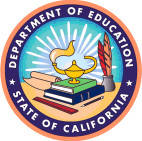 Declaring a major in the humanities — whether philosophy, English, a classical language or cultural studies — often elicits a skeptically raised eyebrow from friends and loved ones, and the suggestion that the only career you’ll be prepared for is as a barista at the local coffee shop.
Declaring a major in the humanities — whether philosophy, English, a classical language or cultural studies — often elicits a skeptically raised eyebrow from friends and loved ones, and the suggestion that the only career you’ll be prepared for is as a barista at the local coffee shop.
Research sponsored by the WhatEvery1Says Project, co-directed by California State University, Northridge English professor Scott Kleinman, may provide you with new data to counter those skeptical looks. The WhatEvery1Says Project, based at the University of California, Santa Barbara, has recently been awarded $1.1 million by the Andrew W. Mellon Foundation. Along with professors Alan Liu and Jeremy Douglass at UC Santa Barbara and professor Lindsay Thomas at the University of Miami, Kleinman will spend the next three years studying how the public views the humanities, and provide those in the field with the tools to counter negative stereotypes.
Kleinman is partnering with the UCSB-based WhatEvery1Says project for this study. The researchers will mine digital media – newspapers, magazines, and blogs – to learn what pundits, politicians, scholars, students, and even the media itself think, say, and write about the humanities.
“The reality is, we don’t know which perceptions predominate, and in what contexts,” said Kleinman.
To find those answers and others, Kleinman and his colleagues will employ “topic modeling” – a method of using sophisticated computer algorithms to search vast digital archives of media — from newspapers and magazines to blogs — for words related to the humanities and liberal arts. The computer sorts the words from these materials into groupings of identifiable topics or themes that the researchers can then analyze for answers to their questions about how the public perceives the humanities or liberal arts.
The research program includes three years of summer research by teams of students and faculty at CSUN and UCSB. Undergraduate and graduate students will assist in collecting and analyzing thousands of documents. In addition, the project will create open protocols and tools for performing humanities research with computers that can analyze large amounts of data. As part of the project, the three-campus team will develop a system that allows researchers to generate their own topic models with an interactive browser for studying their implications. The system will be easily reproducible by other researchers and adaptable for use with other types of data and analytical tools.
The data collected will be used to formulate strategies and narratives to counter the perception that the humanities are irrelevant in today’s tech-driven world.
“There are time-honored narratives such as if you get a degree in the humanities you are going to work at Starbucks,” Kleinman said. “Politicians frequently dismiss the humanities because they can’t see how they contribute to the economy. Those perceptions of the value of the humanities are not born out by the data. But what we need are the tools so we can effectively counter those misconceptions.”
An approach to computational research that draws on the humanities critical tradition is itself a new way to demonstrate how the humanities can address twenty-first century problems. But there is still a need to overcome barriers in communication.
Kleinman pointed out that studies show that in business, employers say they want “critical thinkers, though they may be applying it differently than we do in the humanities. They probably think of critical thinking as ‘problem solving’,” he said, and humanities majors excel at this. “When we just look at a narrow focus — will students who study humanities subjects get jobs? — there is pretty unequivocal evidence that they do”, Kleinman said. “And, over the course of their careers, they prove themselves to be more flexible and more capable of adapting to new employment situations so that they tend to rise to managerial status faster.”
“Critical thinking is one of the cornerstones of the humanities but we often use it in the context of a much broader array of inquiries in the historical, ethical, and imaginative records of human cultures. Because we’re using different words and concepts, we may not realize that we’re talking about the same thing.
“We need to re-think how the humanities are portrayed in the public, and give those of us in the humanities and liberal arts better tools to explain what we do and why it’s important.”
More information about WhatEvery1Says can be found on the project’s website: http://we1s.ucsb.edu.
Like this:
Like Loading...
Related




 Tweet This
Tweet This Facebook
Facebook Digg This
Digg This Bookmark
Bookmark Stumble
Stumble RSS
RSS

































REAL NAMES ONLY: All posters must use their real individual or business name. This applies equally to Twitter account holders who use a nickname.
0 Comments
You can be the first one to leave a comment.